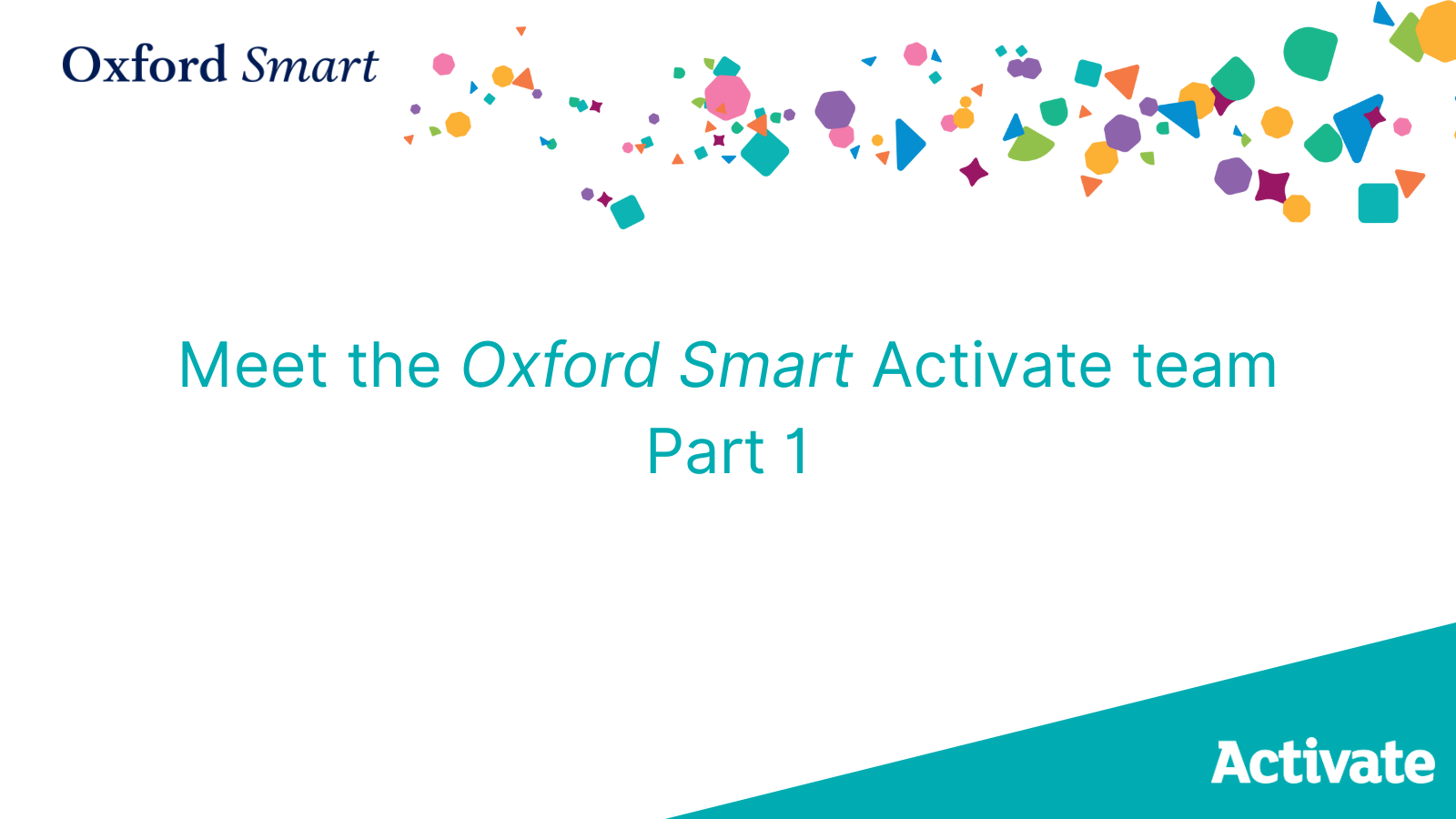Oxford Smart Activate is the next evolution of the best-selling KS3 series, Activate. From the initial discussions of the Curriculum Development group, through to the testing phase with over 20 Pioneer Schools working with Year 7 groups, the development of Oxford Smart Activate has been a team effort.
We wanted to shine a light on the Oxford Smart Activate authors who have brought the curriculum discussions to life via student and teacher support, all accessible digitally on Kerboodle, and through print student books and teacher handbooks.
In this first part, we hear from Dr Andrew Chandler-Grevatt, Lauren Stephenson, Kathy Freeston, Jo Locke, and Karen Collins as they tell us about their experiences working on Oxford Smart Activate and why they think science departments should take a closer look
What did you enjoy most about working on Oxford Smart Activate?
Andrew Chandler-Grevatt: I loved being able to think about curriculum from a very big scale and being able to work with a team of experts to make the concepts come together for students in the school laboratory.
Lauren Stephenson: Being able to be involved in each stage creating the metacognition pillar. I enjoyed the challenge of making it accessible for staff and students.
Kathy Freeston: The wide range of tasks I had to think about as subject matter expert for the Student and Teacher books and Scheme of Work writer. This included laying out suggestions of misconceptions, barriers and strategies, responsive teaching and learning activities and extra lesson guidance.
Jo Locke: Working with the original Activate authors and Andy but taking into account new research and updating the content to be more relevant and reducing cognitive load.
Karen Collins: I enjoyed considering the sequencing of disciplinary knowledge and how this could be applied to the development of knowledge for investigative work.
Which aspects of Oxford Smart Activate do you think will appeal most to science departments?
JL: It’s visually appealing – information is presented at the correct levels. There are lots of examples of teaching activities and practicals which are fully planned for teachers to choose from.
KF: The checkpoints for understanding, the complete package of digital resources, presentations, suggested questions (with answers!) for responsive teaching and learning and the development of resources to help with metacognition.
LS: That Oxford Smart Activate has a ‘whole package’ approach. All of the key pillars address various aspects of good pedagogy. Rather than just providing the science content and resources, it really supports the implementation and delivery too.
KC: I think the sequencing and the development of knowledge over time will appeal.
ACG: Oxford Smart Activate is well designed, thoroughly thought through and tested by teachers and students so that teachers can have confidence to deliver an interesting and effective KS3. The curriculum narratives are particularly useful for teachers to understand what students should be taught in each topic in the context of the whole science curriculum from KS1 to KS4.
In your experience, which science practical gets the most ‘ooohs’ and why?
ACG: I like the ones that challenge preconceptions. For example, comparing how quickly ice will melt on a metal block and wooden block.
LS: Viewing onion skin cells with a microscope in KS3 – often it is the first ‘real’ science experiment when they start in KS3. It uses new equipment and really brings the content alive.
JL: Demonstrating the reactivity of alkali metals with water – mini fireworks!
KF: Microscope work which unlocks a whole new world to explore. No matter which age group you are working with, from Y7 to Y13, they are always blown away by the different cells or organisms they get to see.
Look out for part two, which includes Amanda Clegg, Helen Reynolds, Sam Holyman and Philippa Gardom Hulme. In the meantime, why not take a look at:
- The Oxford Smart Activate resource hub
- Curriculum Narratives in Science: What’s the story? – Dr Andrew Chandler-Grevatt
- Metacognitive learning skills at KS3 – Lauren Stephenson
